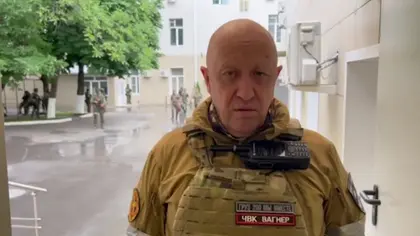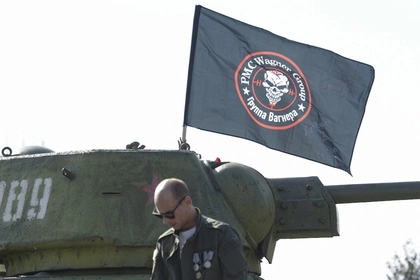In a recent investigation, Proekt, an acclaimed investigative media outlet labelled as a “foreign agent” by Russia, has compiled a detailed “criminal and psychological portrait” of Yevgeny Prigozhin, the founder of the Wagner Private Military Company (PMC).
The investigation, based on interviews with a dozen or so of Prigozhin's acquaintances and employees, gives a clear insight into his personality and motivations.
According to Proekt's sources, Prigozhin's rebellious actions are due to his impulsive nature. One member of Prigozhin's inner circle revealed that he described his reaction to some of the Wagner chief’s action as “[I was] Freaked out.”
Longtime employees speculate that Prigozhin's recent erratic behavior could also have been influenced by his past medical history which included abdominal cancer and undergoing extensive therapy.
“This is a man with his stomach and intestines cut out!” one anonymous individual said when asked to explain why Prigozhin might have resorted to an armed rebellion.
But health issues might be not the only reason for his impulsive decisions. Proekt's investigation suggests the conflict between Prigozhin and the Defense Ministry dates as far back to at least 2017 when Prigozhin's Wagner PMC participated in the assault on Palmyra in the Homs governorate of Syria.
He allegedly held a grudge against Defense Minister Shoigu and his generals, who received credit for the operation while overshadowing and failing to acknowledge the role played by Wagner.

'Starving' in Isolation: Fears For Imprisoned Belarus Protest Leader
According to Proekt's sources, the final trigger for the armed rebellion was an announcement by the Ministry of Defense on June 10, that Wagner fighters would be required to sign contracts with the Russian army.
However, despite the Proekt's interlocuters' statements, the evidence suggests that the mutiny was not a spontaneous event; instead, its media coverage had allegedly been prepared in advance. The RIA FAN publication, which has close ties to Prigozhin, registered “mirror” versions of its site almost a month before the rebellion.
Curiously, on the day of the mutiny, journalist Alina Lipp, affiliated with the media, came to Rostov on the day before the coup was launched.
In addition, on the morning of June 23, several high-ranking officials from Prigozhin's organization abruptly left St. Petersburg in advance of the start of his “march for justice”, indicating prior knowledge and anticipation of the actions Russian security forces would take as a result of the mutiny.
“The factory management knew everything and was waiting for searches,” revealed one source close to Prigozhin.
Despite these revelations, some individuals within Prigozhin's circle continue to attribute the mutiny to his impulsive nature.
The mutiny, initiated by Yevgeny Prigozhin, the founder of the Wagner Private Military Company, commenced on June 23 with a declared “march for justice” aimed at removing Russian Defense Minister Sergei Shoigu and Chief of the General Staff of the Armed Forces of the Russian Federation, Valery Gerasimov, from their positions.
Over the course of a little over a day and a half, the mercenaries seized control of Rostov and crossed through several Russian regions, shot down six Russian army helicopters and one plane. However, just as they reached striking distance of Moscow, Prigozhin abruptly altered his course following an agreement negotiated with Belarussian President Alexander Lukashenko.
In line with the settlement, the Wagner PMCs returned to their field camps, and all charges against Prigozhin were dropped, facilitating his relocation to Belarus.
You can also highlight the text and press Ctrl + Enter






